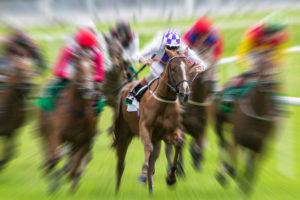ATG continues row over funding of Swedish racing

The former horse racing betting monopoly ATG has responded to claims made by the head of the Swedish Gambling Market Inquiry.
Sweden.- The former horse racing betting monopoly AB Trav Och Galopp (ATG) has reignited a row over the funding of equestrian sports in Sweden.
Maria Guggenberger, head of corporate social responsibility at ATG, has hit back at Anna-Lena Sörenson, who is head of the Swedish Gambling Market Inquiry.
Speaking in a webinar hosted by the Swedish Gambling Association (SPER), Sörenson had vouched for the sustainability of Sweden’s current model in which horse racing is financed from ATG’s surplus.
She defended her decision last year to reject the creation of a new racing levy for all horse racing betting operators saying that collecting the levy would cost more money than it would generate for the industry.
However, Guggenberger has responded by claiming that funding for equestrian sports is being eroded by the new competition ATG faces.
She said: “It is flattering that the investigator has such confidence in ATG’s continued strong financial position, and we naturally hope that she is right in her forecast.
“The problem is that the values at stake are far too great to be able to rely on hope. Sweden’s horse racing entrepreneurs are entitled to a more long-term sustainable model than that.
“I do not dare to think about what 38,000 people who have their income from the horse racing industry think when they read the investigator’s conclusion.”
See also: ATG sues Svenska Spel in trademark battle
Continued calls for betting levy
Guggenberger said ATG surpluses have benefited the equestrian industry to the tune of SEK2bn (€200m) a year – almost half its turnover – for the last 50 years.
ATG has been calling for a levy to be introduced since the market was opened up to competitors in 2019.
She said: “About half of the money goes to prize money for horse owners and other active people and about a third goes to the tracks to cover competition costs and maintenance.
“The remaining funds finance central operations and the sport’s costs for audio and video production of its competitions.”
She added: “For every market share that ATG may lose to competitors, equestrian sports lose that amount in financing.”











